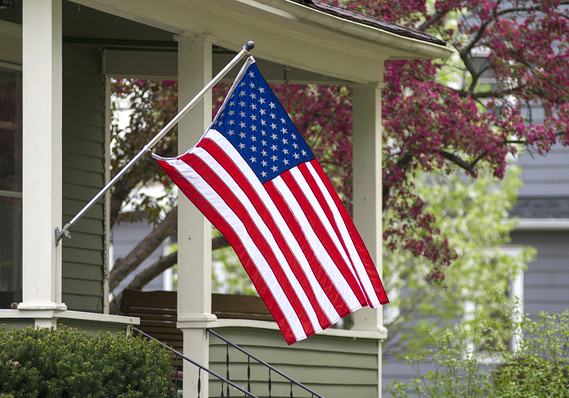 Getty Images
Getty Images
Rates for home loans edged up as financial markets stabilized on hope about global trade, but held near long-time lows.
The 30-year fixed-rate mortgage averaged 3.75% in the holiday-shortened July 3 week, Freddie Mac said Wednesday. That was up two basis points. Halfway through the year, the benchmark product has only managed eight weekly increases.
The 15-year fixed-rate mortgage averaged 3.18%, also up two basis points. The 5-year Treasury-indexed hybrid adjustable-rate mortgage averaged 3.45%, up from 3.39%.
Fixed-rate mortgages track the 10-year U.S. Treasury note TMUBMUSD10Y, +0.00% , which rose slightly after a weekend detente between President Trump and Chinese president Xi Jinping.
Related: Housing market sentiment hits a 5-year high: a good omen for sales?
In late June, President Trump signed legislation that will increase the fees paid by borrowers taking out mortgages backed by the Veterans Administration. The Blue Water Navy Vietnam Veterans Act aims to extend medical benefits to veterans who served in the Navy off the coast of Vietnam and say they were exposed to Agent Orange. Last year, the VA estimated the bill would cost $3.4 billion over the next five years. Higher fees on home loans will help defray that.
As MarketWatch explained last year, the notion of paying for benefits for an older generation of vets by increasing the cost of homeownership for younger ones was uncomfortable. No one wants to deny medical care for anyone who served his country, but the idea of passing the buck to those just settling down didn’t seem fair, either.
For many housing industry participants, the idea of adding more friction to the already challenging process of becoming a homeowner was also unwelcome – perhaps particularly so in the VA mortgage program, which is often hailed as a model of innovative lending.
Many veterans have little to no credit history, since many join the military before they start working, using credit cards, paying back loans, and so on. So the VA uses an underwriting approach it calls “residual income,” which considers a borrower’s total cash flow for all expenses, not just housing.
See: A government mortgage program healed the holes in this military family’s hearts
Another feature of the VA mortgage program is how well it serves those who have served the country. As one analyst told MarketWatch in 2016, “I have a sense that there’s a behavioral aspect of veterans, an element of military discipline. They may take their mortgages more seriously than the general population and feel it’s more important to stay current.”
That may sound like wishful thinking, but it’s borne out by actual lending records. VA mortgages consistently have delinquency rates lower than the national average.
The VA made anyone who could not prove he was on the ground in Vietnam ineligible for benefits in 2002. Some veterans have been pushing for funding to be restored since then. A spokesman for the Iraq and Afghanistan Veterans of America told MarketWatch last year, “We have a huge interest in looking out for those who came before us who have been hugely impacted by this for decades.”
See: America’s housing market is competitive, unequal, and often just getting by. Just like us.










Add Comment